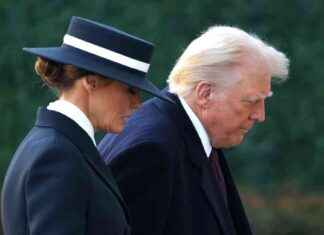China’s special envoy to the UN climate conference in Dubai has stated that his delegation is intensifying talks with the United States and other countries to find a common language for referring to fossil fuels that can be agreed upon at this summit.
Xie Zhenhua was not explicit about whether China supports or opposes phasing out fossil fuels, as more than 100 governments are pushing for in crucial climate talks.
But he did indicate that he and his delegation are committed to trying to find a common ground on this controversial issue, which has become the cornerstone of the negotiations.
Xie Zhenhua, 74, a very experienced diplomat, pointed out that the compromise could be found around what was agreed with his American counterpart John Kerry at the meeting held in November at the Sunnylands estate in California.
This agreement highlights the link between a gradual reduction in the use of fossil fuels and the acceleration of the deployment of renewable energy.
At that meeting, it was agreed, he noted, that “both China and the United States will massively promote the deployment of renewable energy and use it to gradually and orderly replace oil, gas and coal power generation, so that we can reduce greenhouse gas emissions. greenhouse gases,” Xie said.
However, the Sunnylands statement focuses on the use of fuels (coal, oil and gas) used in power generation, and not on all uses in the economy. Still, Xie, who spent much of Saturday locked in talks with U.S. officials, remained optimistic.
The US-China relationship is seen as the key to success or failure at the annual UN-sponsored COP talks, and Xie and Kerry have worked more closely than ever this year.
“We hope to find a clear and correct future direction with good vibes and the greatest inclusiveness, so that everyone can accept and be satisfied with the results,” Xie said at a news conference on Saturday. On fossil fuels, he said: “If we don’t solve this problem, I don’t see much chance of COP28 being successful.”
Including a gradual reduction in fossil fuels has become the central issue in Dubai as talks enter their final three days. To date, the UN agreement on climate change, established at COP26 (Glasgow), only refers to the reduction of coal use but a coalition of more than 100 nations in favor of expanding it. However, Saudi Arabia and other oil-producing nations reject it.
The latest draft text released Friday night offered four options. The weakest is to completely abandon any reference to dirty energy, while the strongest calls for a “phasing out of fossil fuels in accordance with the best available science.” Few expect an agreement on phasing out fossil fuels, but there is some optimism that a deal can be reached on a phase-out.
During the briefing that lasted more than an hour, the first held by the Chinese delegation group since the conference began on Nov. 30, Xie repeatedly referred to the joint statement following his meeting with his American counterpart last month in California.
The Sunnylands deal does not include a “phasing out” of fossil fuels, but says both sides “intend to sufficiently accelerate the deployment of renewable energy in their respective economies through 2030 from 2020 levels to accelerate energy substitution.” coal, oil and gas generation.
China, the world’s largest emitter of greenhouse gases, is cautious about talking about eliminating the use of fossil energy. Since a gradual reduction in coal use was agreed at COP26 in Glasgow, China has continued to expand its coal-fired power plants to ensure sufficient supplies despite the rapid expansion of solar and wind energy.
An important element in the final agreement of the COP28 text is expected to be the inclusion of a commitment to triple the deployment of renewable energy by the end of the decade.
Xie is admired by negotiators, observers and researchers both in China and abroad for his tireless work ethic into old age and health problems. He is a well-known figure at the COP and is always greeted by supporters as he walks between the national pavilions and negotiating rooms.
Before the press conference, Chinese and US negotiators met for hours in the Chinese pavilion, and Xie and Kerry personally led the talks for about an hour.
China’s veteran envoy told reporters that he considered COP28 the most difficult he had experienced in his long career as a climate negotiator.
“There are so many issues to resolve: 206 disputes in total,” Xie said of the negotiating text being discussed.
Beyond fossil fuels, one of the key issues at this year’s COP is progress on agreeing targets for adaptation. The first draft of that part of the text was published on Sunday morning.
It contains a long list of voluntary goals to be achieved by 2030, including providing universal access to safe and affordable water, achieving climate-resilient goods and agriculture, and halving climate impacts on infrastructure.
It commissions a series of reports through 2025 and requests that the long list of objectives have specific and quantified goals based on two years of work that will conclude in Brazil at COP30.















